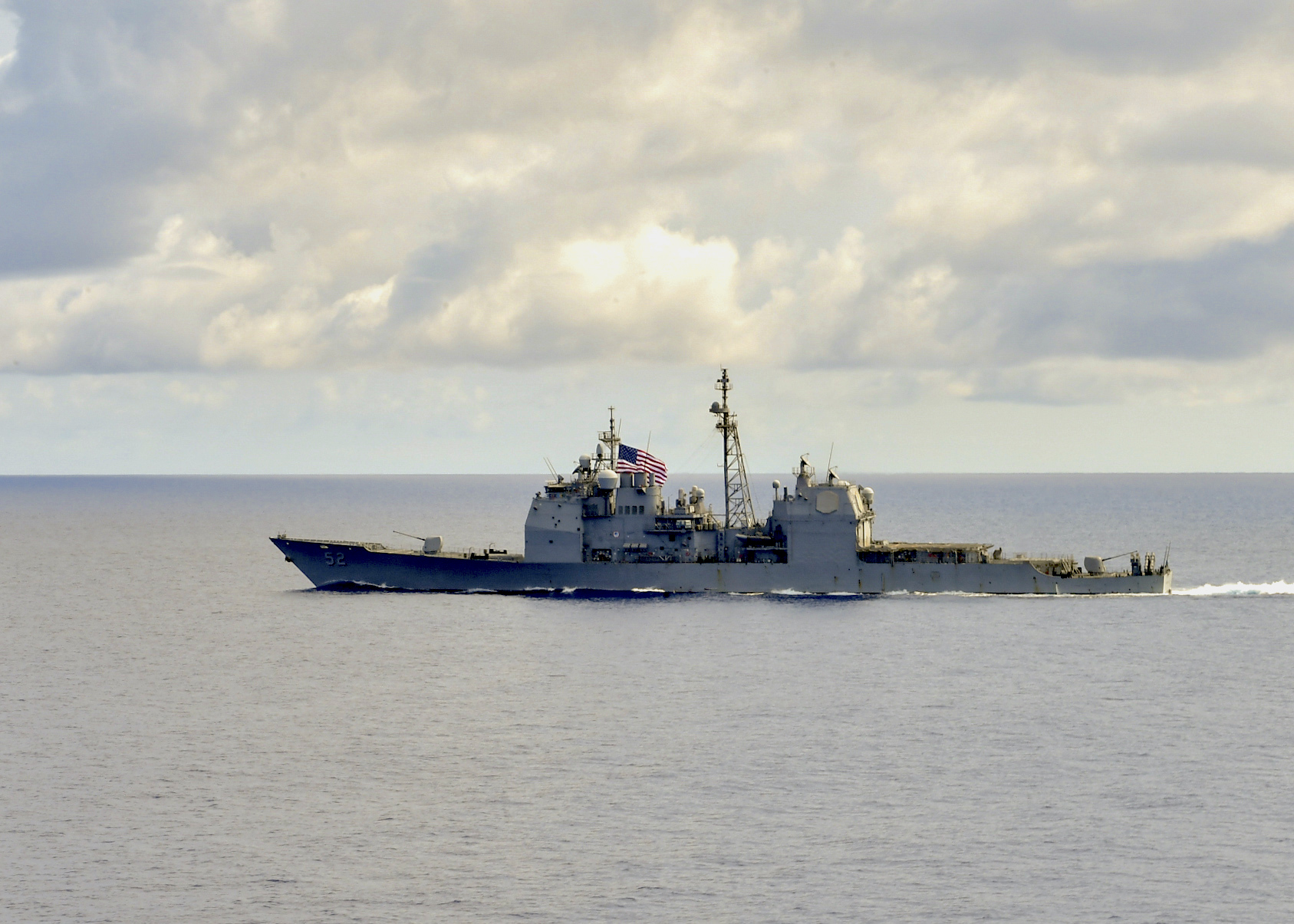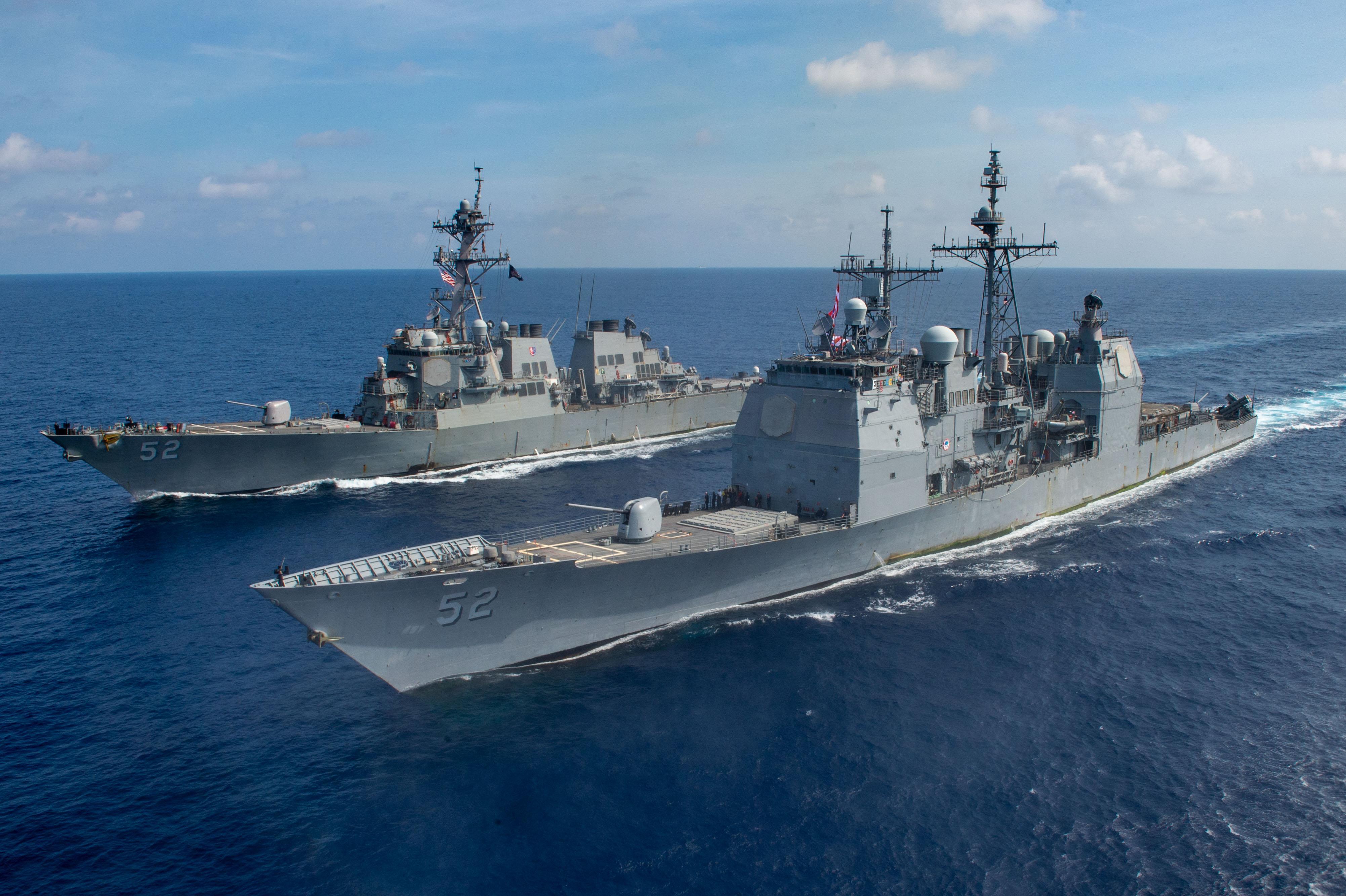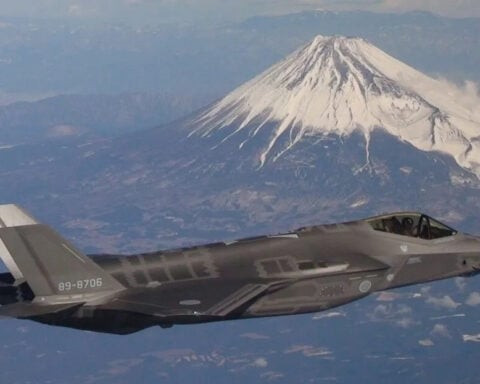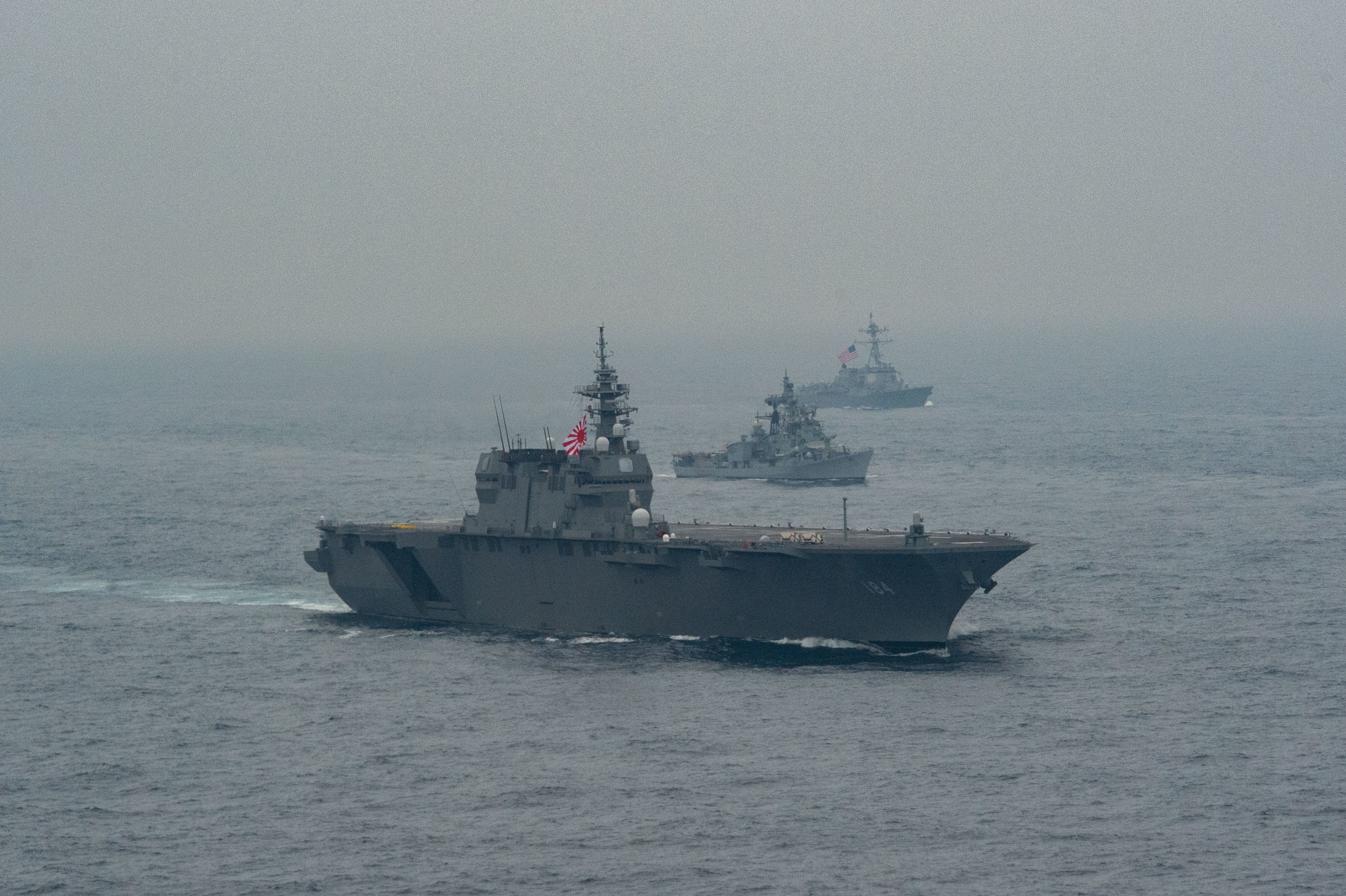
This post has been updated with additional details of Bunker Hill’s freedom of navigation operation.
Guided-missile cruiser USS Bunker Hill (CG-52) conducted a freedom of navigation operation through the Spratly Island chain in the South China Sea, U.S. 7th Fleet announced on Wednesday.
According to a statement from the Navy, the cruiser tested excessive maritime claims of China, Vietnam and Taiwan. All three countries have overlapping claims in the contested island chain.
Bunker Hill, without prior notification, conducted an innocent passage past an unspecified feature in the Spratly chain. Under international maritime law, a warship can move through a country’s territorial sea without notification as long as it doesn’t conduct any military operations.
“Unlawful and sweeping maritime claims in the South China Sea pose a serious threat to the freedom of the seas, including the freedoms of navigation and overflight and the right of innocent passage of all ships,” reads the statement from 7th Fleet.
“This freedom of navigation operation upheld the rights, freedoms, and lawful uses of the sea recognized in international law by challenging the restrictions on innocent passage imposed by China, Vietnam and Taiwan.”
A Navy official told USNI News the transit was in the vicinity of Gaven Reef, home to a Chinese military supply installation. Under international maritime law, the feature commands its own territorial sea that would require a warship to make an innocent passage within 12 nautical miles without prior notification.
The Bunker Hill FONOP follows a Tuesday operation in which guided-missile destroyer USS Barry (DDG-52) tested Chinese and Vietnamese claims in the Paracel Islands, also in the South China Sea.
The Tuesday operation drew a swift rebuke from the Chinese government.
“These provocative acts by the U.S. side … have seriously violated China’s sovereignty and security interests, deliberately increased regional security risks and could easily trigger an unexpected incident,” reads a statement from PLA Southern Theatre Command spokesman Li Huamin.
Barry’s FONOP was “incompatible with the current atmosphere as the international community is fighting pandemic … as well as the regional peace and stability.”
The Japan-based destroyer has also made two Taiwan Strait transits this month, drawing negative reactions from Beijing.
In addition to the freedom of navigation operations, the U.S. has been active in the South China Sea. Bunker Hill, Barry and amphibious assault ship USS America (LHA-6) had been operating off the coast of Malaysia near an ongoing dispute over mineral exploration between Malaysia and China earlier this month.

The following is the April 29, 2020 statement from U.S. 7th Fleet.
On April 29 (local date), USS Bunker Hill (CG-52) asserted navigational rights and freedoms in the Spratly Islands, consistent with international law. This freedom of navigation operation (“FONOP”) upheld the rights, freedoms, and lawful uses of the sea recognized in international law by challenging the restrictions on innocent passage imposed by China, Vietnam, and Taiwan.
Unlawful and sweeping maritime claims in the South China Sea pose a serious threat to the freedom of the seas, including the freedoms of navigation and overflight and the right of innocent passage of all ships.
The U.S. position on the South China Sea is no different than that of any other area around the world where the international law of the sea as reflected in the 1982 Law of the Sea Convention provides for certain rights and freedoms and other lawful uses of the sea to all nations. The international community has an enduring role in preserving the freedom of the seas, which is critical to global security, stability, and prosperity.
As long as some countries continue to claim and assert limits on rights that exceed what is provided for under international law as reflected in the Law of the Sea Convention, the United States will continue to demonstrate its resolve to uphold these rights and freedoms for all. No member of the international community should be intimidated or coerced into giving up their rights and freedoms.
China, Taiwan, Vietnam, Malaysia, Brunei and the Philippines each claim sovereignty over some or all of the Spratly Islands. China, Vietnam, and Taiwan purport to require either permission or advance notification before a military vessel or warship engages in “innocent passage” through the territorial sea. Under international law as reflected in the Law of the Sea Convention, the ships of all States – including their warships – enjoy the right of innocent passage through the territorial sea. The unilateral imposition of any authorization or advance-notification requirement for innocent passage is not permitted by international law, so the United States challenged those requirements. By engaging in innocent passage without giving prior notification to or asking permission from any of the claimants, the United States challenged the unlawful restrictions imposed by China, Taiwan, and Vietnam. The United States demonstrated that innocent passage may not be subject to such restrictions.
U.S. forces operate in the South China Sea on a daily basis, as they have for more than a century. All of our operations are designed to be conducted in accordance with international law and demonstrate the United States will fly, sail, and operate wherever international law allows – regardless of the location of excessive maritime claims and regardless of current events.
The United States upholds freedom of navigation as a principle. The Freedom of Navigation Program’s missions are conducted peacefully and without bias for or against any particular country. These missions are based in the rule of law and demonstrate our commitment to upholding the rights, freedoms, and lawful uses of the sea and airspace guaranteed to all nations.





